Overcoming ‘gay fatigue’
OPINION | washingtonblade.com
Overcoming ‘gay fatigue’
Gay, gay, gay. Gay dinner parties, bars parades, books, movies and friends. Just when I’d had enough, it hit me.
By K. PEARSON BROWN
Feb. 17, 2006
I HAVE NAMED the malaise from which I suffered: "gay fatigue."
No, it’s not an allusion to the camouflage pants that shirtless gay men donned with combat boots to look macho in the disco era; it’s a thoroughly modern feeling of being tired of the whole gay thing.
That’s right. I was burned out on GLBT.
Gay, gay, gay.
Over the years, I have joined any number of gay clubs and volunteered for gay causes. I co-founded a networking group for lesbians in the entertainment industry, which was an endless gala of gay mixers with gay gals.
Then of course, in my private life I held gay dinner parties, went to gay bars, marched in gay parades, read gay books and saw gay movies.
After nearly a decade and a half of community activism, I wanted out of being out.
THE MOUNTAIN OF hype surrounding the gay cowboy movie that needs not speak its name was the straw that broke my back. It seemed that the film and its gay theme had become the topic of every coffee chat, news report, TV talk show, radio program, magazine article and late-night monologue.
As I was striding on my elliptical trainer in my bedroom one morning watching the "Today Show," yet another commercial came on for this groundbreaking love story that was destined to become a classic.
I suddenly felt exhausted, and it wasn’t the elevation to Level 9 on the Himalayan Trek: I was suffering from gay fatigue. I was tired of all of the fuss over homosexuality.
As I cruised into a virtual valley on my stepper, I imagined Katie Couric cooing about romantic Valentine’s outings for same-sex couples. "Guys, take your boyfriend out for a candlelight dinner," or "Ladies, how about an Olivia cruise for the two of you?" Why not?
I fantasized about us as gay people being considered not as queer but as ordinary folk; not defined or pigeonholed by our sexual orientation, not seen by straight society first as gay and second as relatives, neighbors, co-workers, doctors, teachers, shop clerks, Pilates instructors or whatever.
Rosie O’Donnell defended staying in the closet so long because she didn’t want her name preceded by an adjective for eternity. "Lesbian Rosie O’Donnell," she said, "It’s like ‘Aries Rosie O’Donnell’ or ‘size-10-shoe Rosie O’Donnell."
I couldn’t agree more, I thought. And then I thought, "That’s a pretty big foot."
As I hit a plateau and strode at Level 7, I realized I had no choice but to accept that despite millions of TV-watching middle-American housewives welcoming a big dyke into their living rooms everyday-—-Ellen, not Martha-—-they still view us differently than themselves.
THEN I WONDERED, just how do they think we are different? Well, everyone knows that gay men-—-think Fab Five-—-dress, groom, decorate and cook better than straight men, and way better than gay women.
Gay women-—-think Martina-—-are better athletes than straight women, and way better than gay men-—-think Fab Five. Gay men are excellent dancers, and gay women are good talk show hosts.
It occurred to me that being gay makes an average Joe or Joely more interesting, more individual. It’s like having a hip, cool style without having to work at it.
I thought about how we as gay people have formed alternative, extended families. We take care of each other, support each other, spend holidays together, and host potlucks and throw Academy Awards parties together. And despite the common saying, "You can’t pick your family," we did.
With that, I started to feel a little sorry for those people that my gay old friends Richard and Tucker-—-partners for 58 years-—-refer to as "non-gay."
As the machine beeped and congratulated me on a great workout that burned 432 calories in 45 minutes, I no longer felt weary. Instead, I felt energized. Light in my loafers, so to speak.
Suddenly I felt like a gay cowboy myself. A trailblazer. I had taken the road less traveled, less common and less ordinary. While the truth is that we do our daily dozen, go to work, come home and microwave our leftovers just like everyone else, if straight people want to think that we are different, in fact fascinating, then let them.
Like those bumper stickers ask, "Why Be Normal?" After all, different is good. Some might even say extraordinary.
© 2006 The Washington Blade | A Window Media Publication
Overcoming ‘gay fatigue’
Gay, gay, gay. Gay dinner parties, bars parades, books, movies and friends. Just when I’d had enough, it hit me.
By K. PEARSON BROWN
Feb. 17, 2006
I HAVE NAMED the malaise from which I suffered: "gay fatigue."
No, it’s not an allusion to the camouflage pants that shirtless gay men donned with combat boots to look macho in the disco era; it’s a thoroughly modern feeling of being tired of the whole gay thing.
That’s right. I was burned out on GLBT.
Gay, gay, gay.
Over the years, I have joined any number of gay clubs and volunteered for gay causes. I co-founded a networking group for lesbians in the entertainment industry, which was an endless gala of gay mixers with gay gals.
Then of course, in my private life I held gay dinner parties, went to gay bars, marched in gay parades, read gay books and saw gay movies.
After nearly a decade and a half of community activism, I wanted out of being out.
THE MOUNTAIN OF hype surrounding the gay cowboy movie that needs not speak its name was the straw that broke my back. It seemed that the film and its gay theme had become the topic of every coffee chat, news report, TV talk show, radio program, magazine article and late-night monologue.
As I was striding on my elliptical trainer in my bedroom one morning watching the "Today Show," yet another commercial came on for this groundbreaking love story that was destined to become a classic.
I suddenly felt exhausted, and it wasn’t the elevation to Level 9 on the Himalayan Trek: I was suffering from gay fatigue. I was tired of all of the fuss over homosexuality.
As I cruised into a virtual valley on my stepper, I imagined Katie Couric cooing about romantic Valentine’s outings for same-sex couples. "Guys, take your boyfriend out for a candlelight dinner," or "Ladies, how about an Olivia cruise for the two of you?" Why not?
I fantasized about us as gay people being considered not as queer but as ordinary folk; not defined or pigeonholed by our sexual orientation, not seen by straight society first as gay and second as relatives, neighbors, co-workers, doctors, teachers, shop clerks, Pilates instructors or whatever.
Rosie O’Donnell defended staying in the closet so long because she didn’t want her name preceded by an adjective for eternity. "Lesbian Rosie O’Donnell," she said, "It’s like ‘Aries Rosie O’Donnell’ or ‘size-10-shoe Rosie O’Donnell."
I couldn’t agree more, I thought. And then I thought, "That’s a pretty big foot."
As I hit a plateau and strode at Level 7, I realized I had no choice but to accept that despite millions of TV-watching middle-American housewives welcoming a big dyke into their living rooms everyday-—-Ellen, not Martha-—-they still view us differently than themselves.
THEN I WONDERED, just how do they think we are different? Well, everyone knows that gay men-—-think Fab Five-—-dress, groom, decorate and cook better than straight men, and way better than gay women.
Gay women-—-think Martina-—-are better athletes than straight women, and way better than gay men-—-think Fab Five. Gay men are excellent dancers, and gay women are good talk show hosts.
It occurred to me that being gay makes an average Joe or Joely more interesting, more individual. It’s like having a hip, cool style without having to work at it.
I thought about how we as gay people have formed alternative, extended families. We take care of each other, support each other, spend holidays together, and host potlucks and throw Academy Awards parties together. And despite the common saying, "You can’t pick your family," we did.
With that, I started to feel a little sorry for those people that my gay old friends Richard and Tucker-—-partners for 58 years-—-refer to as "non-gay."
As the machine beeped and congratulated me on a great workout that burned 432 calories in 45 minutes, I no longer felt weary. Instead, I felt energized. Light in my loafers, so to speak.
Suddenly I felt like a gay cowboy myself. A trailblazer. I had taken the road less traveled, less common and less ordinary. While the truth is that we do our daily dozen, go to work, come home and microwave our leftovers just like everyone else, if straight people want to think that we are different, in fact fascinating, then let them.
Like those bumper stickers ask, "Why Be Normal?" After all, different is good. Some might even say extraordinary.
© 2006 The Washington Blade | A Window Media Publication
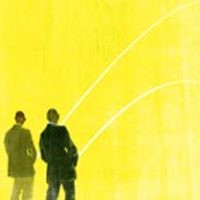



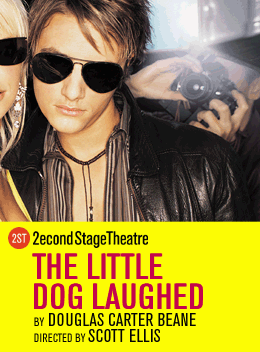
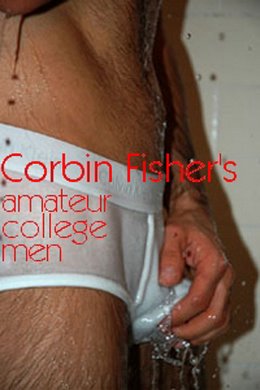

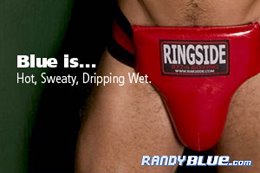

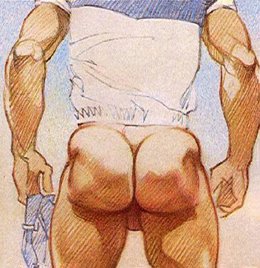
0 Comments:
Post a Comment
<< Home